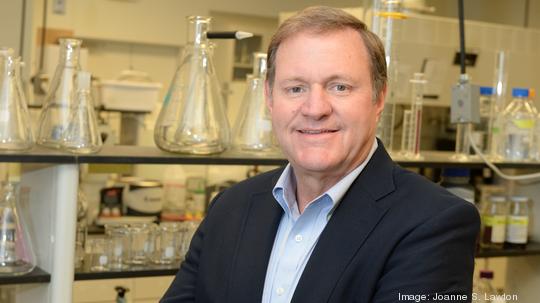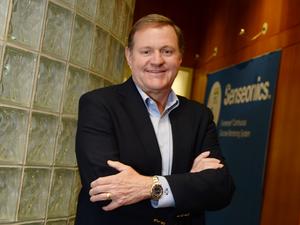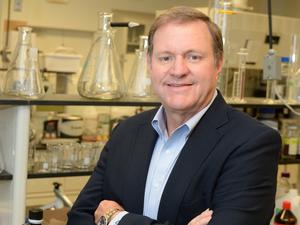
Senseonics Holdings Inc. has added a major name to the growing list of health insurers covering its blood-sugar sensor system for diabetes patients, as the company looks to raise more funding after an uncertain period for the business.
New York nonprofit health insurer EmblemHealth now provides coverage for diabetes patients using Eversense, Senseonics' implantable continuous glucose monitoring (CGM) system, the Germantown med-tech company said Tuesday. That decision, effective immediately, expands the roster of insurance companies covering the product, which already includes Cigna Corp. (NYSE: CI), Humana (NYSE: HUM), CVS-owned Aetna (NYSE: CVS) and others.
The policy gives Senseonics (NYSE: SENS) access to 2.9 million residents in New York, New Jersey and Connecticut — signaling that the payer community recognizes CGM as a standard of care for patients managing their diabetes with insulin, according to Senseonics President and CEO Tim Goodnow.
Now improved glucose control “is even more imperative as the Covid-19 pandemic has revealed the negative consequences of poor glucose management in patients who contract the coronavirus,” Goodnow said in a statement. “Eversense offers patients a new choice amongst the CGM class that delivers industry leading accuracy, an improved patient experience, and an array of unique features intended to afford people the opportunity to achieve improved health outcomes.”
The company’s share price closed at $2.67 Wednesday afternoon, down 6% after hitting a high of $3.90 earlier in the day. The stock has hovered under or around a buck for the past year.
We have reached out to the company for comment and will update this post as we hear back.
More moves to shore up cash
Senseonics said Sunday it has entered into agreements with institutional investors to buy 40 million shares of its common stock at $1.25 per share, or about $50 million in gross proceeds before expenses associated with the offering. The net proceeds — expected to be about $46 million — would fuel general corporate purposes, the company said in federal filings. The offering is expected to close around Thursday subject to customary closing conditions.
Earlier in January the business separately closed a $25.8 million private placement of preferred stock that it initiated in August 2020, further bolstering the biotech’s finances after a rocky period during the pandemic in which it suspended U.S. commercial sales — halting revenue — and initiated a strategic review of the business.
But the company also cut costs and conserved cash and, in October, sought approval from the Food and Drug Administration to extend its 90-day medical device’s wearable life to 180 days. That followed a successful clinical trial for the longer-lasting Eversense product, which is already available in Europe.
Still, that process is facing setbacks. In December the company learned from the Food and Drug Administration that the agency would reallocate resources to focus on applications related to the global health crisis — and that it would affect the FDA’s review of the company’s Eversense 180-day product.
That “will be delayed by at least 60 days, although the precise duration cannot be known due to the uncertainty associated with the pandemic and the volume of Covid-19 [emergency use authorization] submissions,” the company reported in a filing with the SEC. Senseonics “believes that there is still the potential for a decision by the FDA by the end of the second quarter of 2021,” it said.
Getting new product ready for takeoff
Despite the holdup, Senseonics is preparing for an approval, now with Basel, Switzerland-based Ascensia Diabetes Care as a partner to take the 180-day device to market upon a regulatory green light. That arrangement, Goodnow said in the fall, marked “the next phase of growth” for the business. It also gave the biotech up to $80 million to fund regulatory efforts, future product development and support for U.S. patients using its devices.
The company expects to reach between $12 million and $15 million in net revenue for 2021, it said in December. And it expects about $3.5 million for the fourth quarter of 2020 because of a strong performance driven by sales in Europe and Ascensia-led sales of the 90-day product in the U.S., Goodnow said at the time. That’s after a modest $261,000 in total net revenue in the second quarter when it paused U.S. operations and patients delayed care because of coronavirus.
“We have established a strong commercial team integrated with the Eversense operations across the U.S. and our initial efforts have been successful both with reinsertions of current patients and the addition of new patients,” Ascensia President Robert Schumm said in a December statement. “As we look to 2021, we intend to ramp up our investment in the beginning of the new year to increase access to the technology globally. We will be focused on expanding our worldwide sales and marketing activities while building out a comprehensive infrastructure to drive continued Eversense adoption.”

